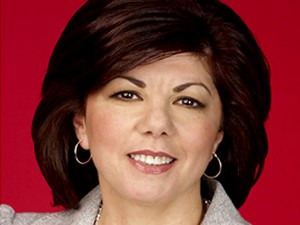
By THOMAS L. FRIEDMAN
On July 7, CNN fired its senior editor of Middle East affairs, Octavia Nasr, after she published a Twitter message saying, “Sad to hear of the passing of Sayyed Mohammed Hussein Fadlallah,” one of the most prominent Lebanese Shiite spiritual leaders who was involved in the founding of the Hezbollah militia. Nasr described him as “one of Hezbollah’s giants I respect a lot.”
I find Nasr’s firing troubling. Yes, she made a mistake. Reporters covering a beat should not be issuing condolences for any of the actors they cover. It undermines their credibility. But we also gain a great deal by having an Arabic-speaking, Lebanese-Christian female journalist covering the Middle East for CNN, and if her only sin in 20 years is a 140-character message about a complex figure like Fadlallah, she deserved some slack. She should have been suspended for a month, but not fired. It’s wrong on several counts.
To begin with, what has gotten into us? One misplaced verb now and within hours you can have a digital lynch mob chasing after you — and your bosses scrambling for cover. A journalist should lose his or her job for misreporting, for misquoting, for fabricating, for plagiarizing, for systemic bias — but not for a message like this one.
What signal are we sending young people? Trim your sails, be politically correct, don’t say anything that will get you flamed by one constituency or another. And if you ever want a job in government, national journalism or as president of Harvard, play it safe and don’t take any intellectual chances that might offend someone. In the age of Google, when everything you say is forever searchable, the future belongs to those who leave no footprints.
Then there is the Middle East angle. If there is one thing that we should have learned from our interventions in Lebanon, Afghanistan and Iraq, it is how few Americans understand these places. We need interpreters alive to their nuances.
I was in Baghdad after the U.S. invasion and met these young Bush appointees who, as Rajiv Chandrasekaran notes in his book “Imperial Life in the Emerald City,” were often chosen because they were 100 percent loyal to Bush, even if they were 100 percent ignorant of Iraq. Their ignorance helped fuel our failure there. “Two people who sought jobs with the U.S. occupation authority [in Iraq] said they were even asked their views on Roe v. Wade,” Chandrasekaran wrote.
I’ve never met Octavia Nasr or Fadlallah. Fadlallah clearly hated Israel, supported attacks on Israelis and opposed the U.S. troops in Lebanon and Iraq. But he also opposed Hezbollah’s choking dogmatism and obedience to Iran; he wanted Lebanon’s Shiites to be independent and modern, and he built a regional following through his social commentaries.
Augustus Richard Norton, of Boston University, a Shiite expert, said this about Fadlallah, whom he knew: “He argued that women should have equal opportunities to men and be well educated. He even argued that women have a right to hit their husband back because it was not appropriate for a spouse to be beaten by their husbands. He was not afraid to speak about sexuality, and he even once gave [a mosque sermon] about sexual urges and female masturbation. It was common to find young people who followed his writings all over the region.” Indeed, Nasr later explained that her tweet about Fadlallah was because he took a “contrarian and pioneering stand among Shia clerics on women’s rights.”
Michael Tomasky, the editor of “Democracy: A Journal of Ideas,” pointed out an essay by the liberal secular Shiite Lebanese journalist Hanin Ghaddar — on the Web site Now Lebanon — recalling how Fadlallah intervened with her conservative father to allow her to live alone in Beirut, telling her father in a letter that he “had no right to tell me what to do, as I was an independent and sane and adult woman.”
Ghaddar said she came to understand that “only figures like Fadlallah could change the status quo. People who position themselves as anti-Hezbollah, critics of resistance, or atheists, will rarely be heard within the Shia community, because people will not listen to them. … Fadlallah on the other hand could reach out to the people because he was one of them. … People like him, if strengthened, can bring about real change. He is one of those rare people whom Hezbollah and the Iranian leadership feared … because people liked him and respected him.”
Of course, Fadlallah was not just a social worker. He had some dark side. People at CNN tell me Nasr knew both. But here’s what I know: The Middle East has to change in order to thrive, and that change has to come from within, from change agents who are seen as legitimate and rooted in their own cultures. They may not be America’s cup of tea. But we need to know about them, and understand where our interests converge — not just demonize them all.
That’s why I prefer to get my news from a CNN reporter who can actually explain why thousands of men and women are mourning an aged Shiite cleric — whom we consider nothing more than a terrorist — than a reporter who doesn’t know at all, or worse, doesn’t dare to say.NYT

Leave a Reply
You must be logged in to post a comment.